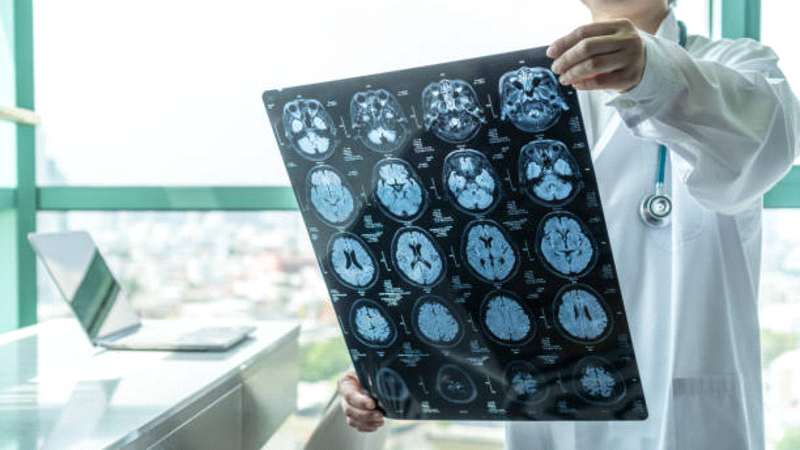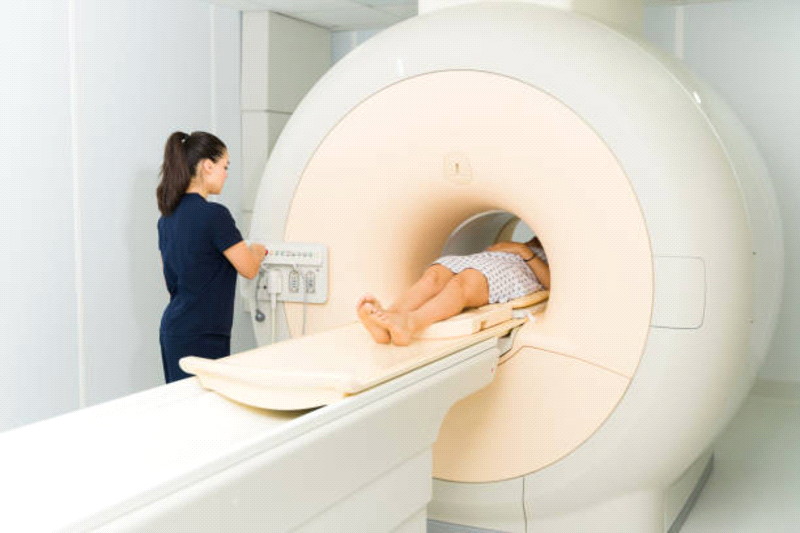Demystifying Medical Imaging: What is an MRI Scan?
Feb 05, 2024 By Madison Evans
An MRI scan, short for Magnetic Resonance Imaging, is a medical imaging technique that utilizes powerful magnets and radio waves to produce detailed images of the inside of the body. It is a non-invasive and painless procedure that has revolutionized the field of diagnostics. In this comprehensive guide, we will delve into the procedure, uses, benefits, risks, and misconceptions surrounding MRI scans.
The Procedure of an MRI Scan:
During an MRI scan, the patient lies on a table that slides into a cylindrical machine. The machine generates a strong magnetic field and sends radio waves to create detailed images of the targeted area. The process is completely safe and does not involve any radiation exposure. Patients are required to remain still during the scan, which typically lasts for 30-60 minutes. The MRI machine produces a series of images that can be viewed and interpreted by a radiologist.
When undergoing an MRI scan,
- Equipments: It's important to note that while the machine is in operation, it produces a loud knocking noise. This is normal and is the sound of the magnetic field gradients being switched on and off. Patients will often be provided with earplugs or headphones to help block out this noise.
- Dye: If a contrast dye is being used to enhance the images, it will be injected into a vein before the scan commences. This dye helps to highlight certain areas in the body, making it easier for the radiologist to interpret the images.
- During the Scan: The radiologist will be in a separate room but they will be able to communicate with the patient via an intercom. This two-way communication is essential as it allows the patient to inform the radiologist if they are uncomfortable or anxious during the procedure.
- After the Scan: The patient can return to their normal activities immediately. There are no side effects from the MRI scan itself, although some patients may experience mild side effects from the contrast dye such as a headache or nausea. These side effects are rare and typically pass quickly.
Understanding the procedure of an MRI scan helps to alleviate any fears or anxieties patients may have, allowing for a smoother, more comfortable experience.
Uses of an MRI Scan:

MRI scans are widely used in medical diagnostics and imaging. They provide valuable insights into various bodily structures, including;
Brain:
MRI scans also have applications in neurological and psychological research, providing a valuable tool for studying the structure and function of the brain. With advanced technology, MRI scanners are now able to measure blood flow and metabolic changes in response to various stimuli, giving us novel insights into how we think and feel.
Spine:
MRI scans are used to diagnose a range of spinal conditions and injuries, such as disc herniations, bulging discs, slipped discs, sciatica, spinal stenosis, degenerative disc disease, and more.
Joints:
MRI scans are also used to diagnose a range of joint conditions and injuries.
Organs:
MRI scans can be used to detect tumors and other abnormalities in the body. They are particularly useful in detecting cancerous masses that may not be visible on X-ray images.
They also play a crucial role in monitoring the progress of treatments, evaluating the effectiveness of medications, and planning surgical procedures.
Benefits of MRI Scans:
One of the greatest advantages of MRI scans is that they are non-invasive and painless.
- Unlike other imaging techniques, such as X-rays or CT scans, MRI scans do not utilize ionizing radiation.
- This makes MRI scans a safer option for patients, especially children and pregnant women.
- MRI scans provide highly detailed and high-resolution images, allowing healthcare professionals to accurately diagnose and assess medical conditions.
Risks and Precautions:
While MRI scans are generally safe, there are a few risks and precautions to consider.
- Allergic Reactions: Some patients may experience allergic reactions to contrast agents, which are sometimes used to enhance the images. It is important to inform the healthcare provider about any known allergies before the scan.
- Claustrophobia: Patients who suffer from claustrophobia or anxiety may find the enclosed space of the MRI machine challenging. In such cases, sedation or open MRI machines can be considered.
- Metal Objects: Patients with implants or metal objects may also need to be cautious, as these can interfere with the magnetic field. However, most modern implants are MRI-safe.
Addressing Misconceptions:
There are several misconceptions surrounding MRI scans that need to be addressed.
- MRI scans do not involve radiation exposure, as they utilize magnetic fields and radio waves. This makes them a safe option for repeated imaging studies.
- MRI scans are generally painless, although some patients may experience slight discomfort due to the need to remain still for an extended period. The use of open MRI machines can help alleviate any feelings of claustrophobia.
- Not all metal objects are unsafe in MRI machines. While certain types of metal can be hazardous, most implants and medical devices are designed to be MRI-compatible.
- It is crucial to differentiate between MRI and CT scans. While both are imaging techniques, they utilize different principles and provide different types of information.
Preparing for an MRI Scan:

To ensure the accuracy and effectiveness of an MRI scan, there are a few preparations to keep in mind. In some cases,
- Fasting: may be required before the scan, especially if the abdomen or digestive system is being imaged.
- Clothing: Patients should also wear loose-fitting clothing without any metal objects, as these can interfere with the magnetic field.
- Communicating: It is important to inform the healthcare provider about any health concerns, conditions, or implants prior to the scan.
Conclusion:
MRI scans have become an invaluable tool in the field of medical diagnostics, providing healthcare professionals with detailed images to aid in diagnosis and treatment planning. With their non-invasiveness, high-resolution images, and safety, MRI scans have revolutionized the way we understand and manage various medical conditions. By debunking misconceptions and providing accurate information, we hope to increase awareness and understanding of the benefits and significance of MRI scans.
-
 Nov 08, 2023
Nov 08, 2023Discover the relationship between baby powder and cancer, and Johnson and Johnson baby powder lawsuit.
Baby Powder's Possible Connection to Cancer Risk
-
 Dec 23, 2023
Dec 23, 2023The same pea-sized recommendation applies to ensure effective cleaning without wastage. Learn more about the uses of toothpaste.
Toothpaste Dosage: How Much is Enough?
-
 Feb 16, 2024
Feb 16, 2024All About Breast Cancer: A Detailed Overview
This comprehensive guide covers various types of breast cancer, their symptoms, risk factors, and treatment options. It also provides tips for managing life after diagnosis.
-
 Jan 19, 2024
Jan 19, 2024What Is a Back Spasm?
Explore what triggers back spasms, learn about their symptoms, and discover the best treatment methods to live a healthier, active lifestyle.
